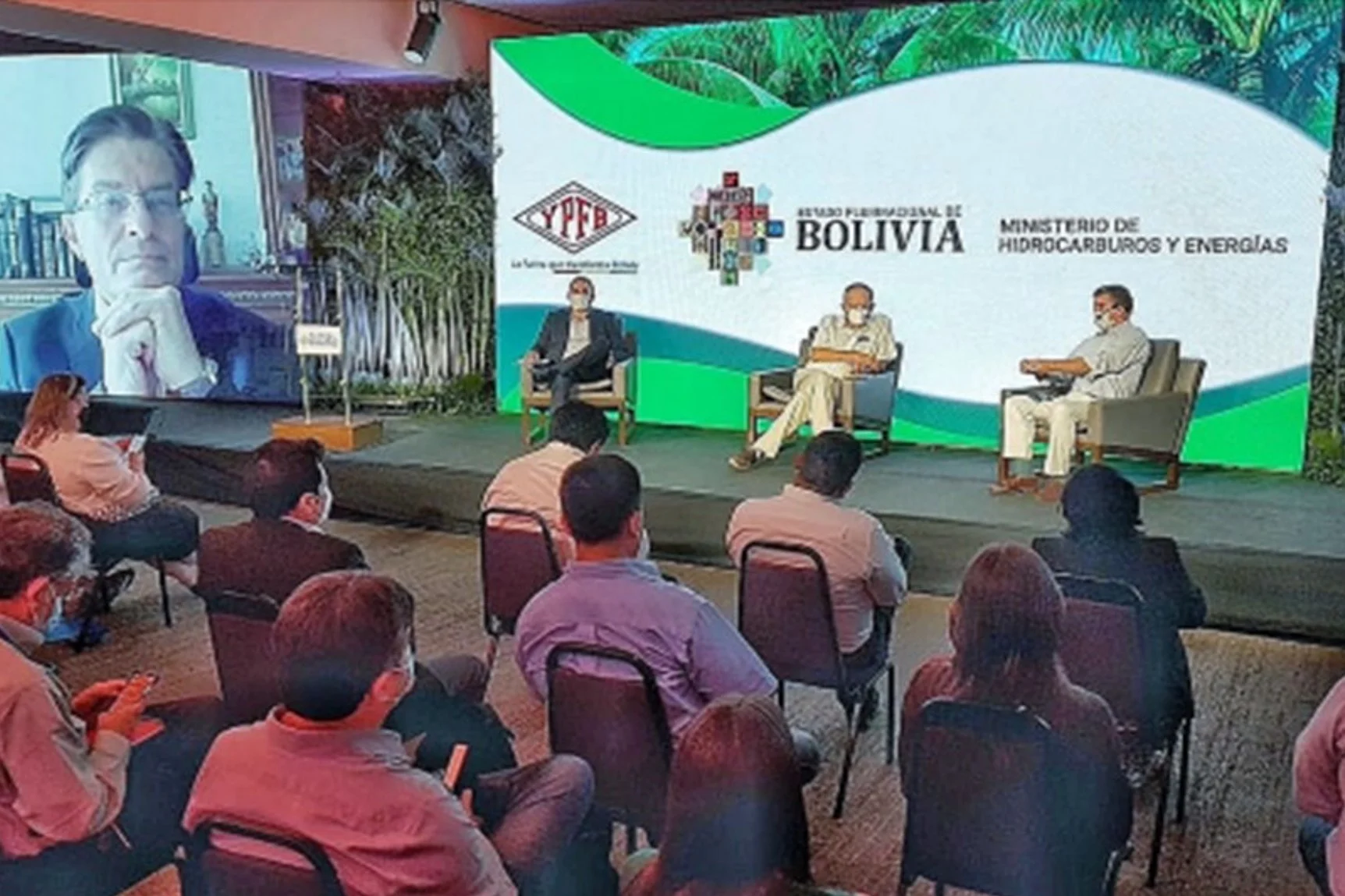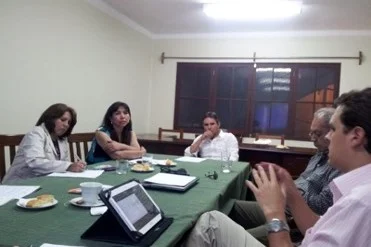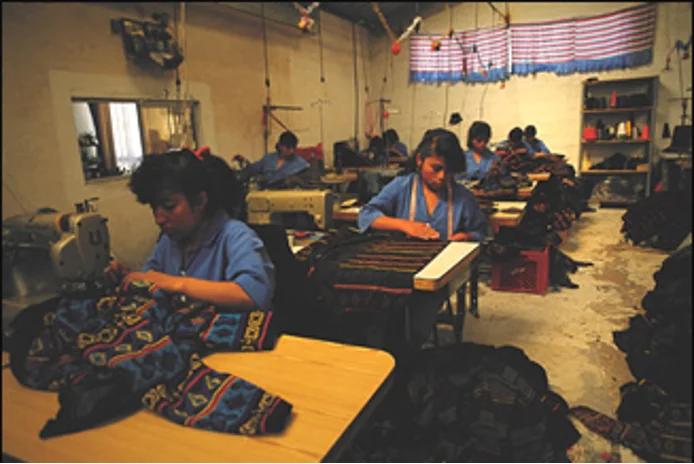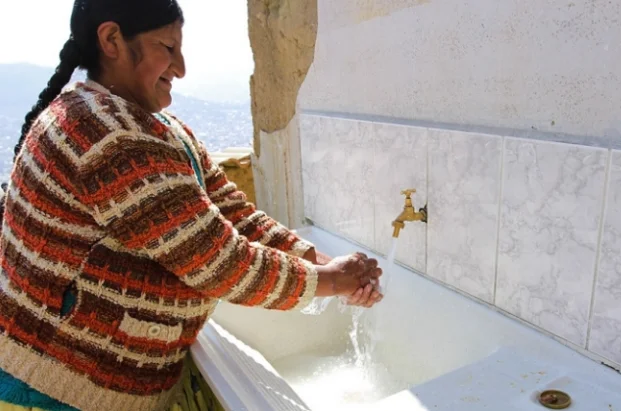Farmers highlight sustainability of Bolivia’s renewable diesel project

AN | YPFB – 03/05/2021 The representatives of the agricultural producers and academics of Santa Cruz, consider that the project “Renewable Diesel”, presented by the executive president of YPFB, Wilson Zelaya, is an important alternative to diversify the agricultural activity, same that will allow to generate more economic resources.
“From the palm trees we can not only extract the oil, but we also have to see the social impact that we can generate and give it a fully integrated use, both of the fruit and of the benefit of the pasture. There is no danger of sustainability ”, stated Roberto Unterlastatter, emeritus professor in agricultural sciences at the Gabriel René Moreno Autonomous University (UAGRM) during his participation in the panel on raw materials of the aforementioned project.
For example, in Santiago de Chiquitos and Ascensión de Guarayos there are associations of men and women who are dedicated to the collection of copaibo and cusi, respectively, for the collection of resins, production of creams, soap and shampoo on a small scale.
The panel was developed after the presentation of the Project “Renewable Diesel, an undertaking that is a pioneer of its kind in Latin America and that will process 450 thousand tons of raw material per year, will produce 9 thousand barrels a day and 3 million barrels a year . It will provide a fuel that is 80% less polluting than fossil fuel. It will allow a saving of US $ 400 million per grant. An investment of $ 250 million is estimated.
RAW MATERIALS
Among the raw materials that were mentioned in the panel for the production of biodiesel are soybeans, totaí, motacú, jatropha and pine nuts, among other products.
For his part, Freddy García, representative of Promasor, said that, “if we take soybeans as a biofuel base, we are not affecting Bolivia’s food security, which is very important to maintain, I believe that the cultivation of SOYA becomes the kicker. initial for the biodiesel process, note that other crops are going to come, which is the fabulous thing about this biodiesel process because we can take various raw materials, not only SOYA, JATROPHA is coming, which is very important for us due to the concentration of the level of oil it has ”.
The intervention of James Jhonson, alumnus of the Agroforestry University of Oxford, highlighted the eco-efficiency of renewable diesel production. He proposed “concentrating on environmental efficiency, on energy efficiency through the combined use of the land between perennial plantations (those that live more than two years) and annual crops, such as peanuts, beans, sorghum, among others.” In his opinion there is no magic crop that will replace diesel.
The three exhibitors agreed on highlighting the sustainability of the project presented by Yacimientos Petrolifos Fiscales Bolivianos. Additionally, they suggested carrying out a census to identify the areas where totaí cultivation is registered with the highest density and also a germination study; as for the other raw materials.
“We farmers take it as a challenge, as an opportunity to produce other crops. We are pleased because the State, through Oilfields, raises its finger to us and tells us: ´Go to work, there is a new opportunity to generate resources´ and we are happy with biodiesel ”, said Freddy García at the closing of the panel.
In this regard, the executive president of YPFB, Wilson Zelaya said – during the presentation of the project that took place hours before the panel on raw materials – that the state oil company hopes to establish alliances with farmers in order to implement this project as soon as possible. “We have the opportunity to initiate conversations and form alliances with them.”
In the same act of presentation of the project, the Minister of Hydrocarbons and Energy, Franklin Molina pointed out that “the environmental project presented by YPFB aims to reduce the import of diesel.”
 Albania
Albania Algeria
Algeria Andorra
Andorra Argentina
Argentina Armenia
Armenia Australia
Australia Austria
Austria Azerbaijan
Azerbaijan Bahrain
Bahrain Belgium
Belgium Bolivia
Bolivia Brazil
Brazil Bulgaria
Bulgaria Cambodia
Cambodia Cameroon
Cameroon Canada
Canada Chad
Chad Chile
Chile China
China Colombia
Colombia Costa Rica
Costa Rica Croatia
Croatia Cyprus
Cyprus Czechia
Czechia Denmark
Denmark Ecuador
Ecuador Egypt
Egypt Finland
Finland France
France Georgia
Georgia Germany
Germany Ghana
Ghana Greece
Greece Hungary
Hungary Iceland
Iceland India
India Indonesia
Indonesia Ireland
Ireland Italy
Italy Jamaica
Jamaica Japan
Japan Jordan
Jordan Kazakhstan
Kazakhstan Kenya
Kenya Kuwait
Kuwait Latvia
Latvia Lebanon
Lebanon Libya
Libya Lithuania
Lithuania Luxembourg
Luxembourg Malaysia
Malaysia Maldives
Maldives Mali
Mali Malta
Malta Mexico
Mexico Moldova
Moldova Monaco
Monaco Morocco
Morocco Netherlands
Netherlands New Zealand
New Zealand Nigeria
Nigeria North Macedonia
North Macedonia Norway
Norway Oman
Oman




